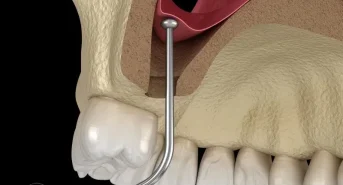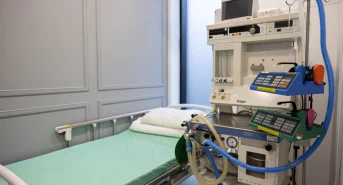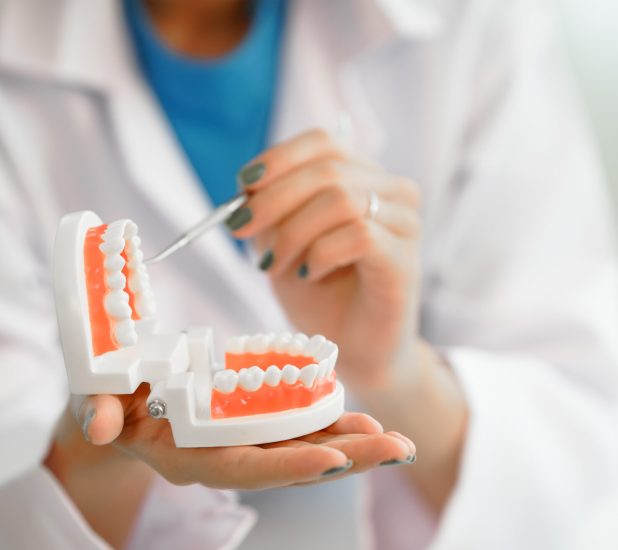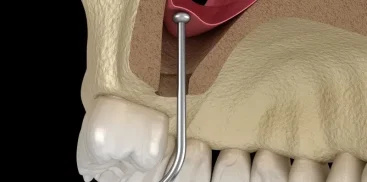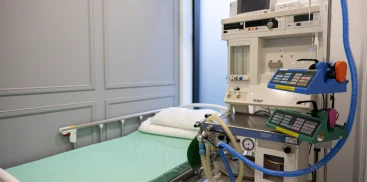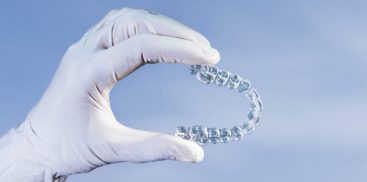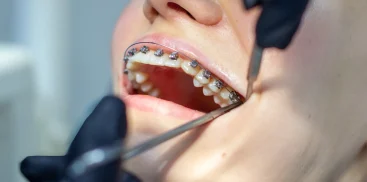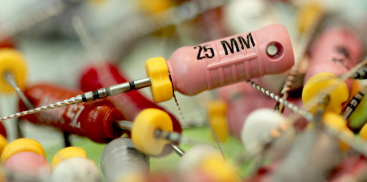cclusal disease, which is one of the diseases of the masticatory system, is the result of the complex interaction of several factors: the shape and position of the upper and lower teeth, the tension of the muscles connecting the mandible with the maxilla and the position of the condyle in the temporomandibular joint.
As a consequence, it may lead to, among others:
facial muscle fatigue, tooth hypersensitivity and other ailments.
How to identify occlusive disease and what treatment methods exist?
Definition of Dental Occlusion in Dentistry
Occlusion is proper contact between the upper and lower teeth.
Mismatch of these contacts leads to discomfort in relation to the temporomandibular joint and muscles.
Common sources of this disorder are malocclusion, incorrect eruption of wisdom teeth, inappropriate fillings, missing teeth, structural defects and tooth displacement.
Bad habits such as thumb sucking as a child, biting pens, opening bottles with your teeth or excessive gum chewing can also contribute to this disease.
As a result, the teeth become abraded, wedge-shaped cavities occur, and even the tooth roots become exposed.
Symptoms of Occlusal Disease
One of the most easily noticeable symptoms is unsightly abrasion of the enamel.
A healthy tooth has a white tint, while its inner layer (dentin) is yellow.
Abraded enamel reveals yellow dentin, which should prompt a visit to the dentist.
Other potential symptoms of occlusive disease include:
Shifting and mobility of teeth.
Masticatory muscle tension.
Problems in the temporomandibular joint, such as clicking, popping or crackling.
Teeth grinding and clenching in stressful situations.
– Pushing the teeth forward.
– Hypersensitivity to temperatures (heat/cold).
Migraine pain.
If any of these symptoms are observed, it is recommended to consult a dentist and initiate appropriate treatment.
Ignoring this disease can lead to serious consequences.
Causes of Occlusal Disease
This disorder may occur in:
patients of different ages and is most often the result of various malocclusions, poor hygiene and dental care.
The causes may also be:
- Inappropriate filling shapes.
- Missing and missing teeth.
- Faulty dentures and rheumatic lesions.
- Abnormal tooth growth.
- Stressors that cause you to clench your jaw, bite your nails, or bite your pens.
Methods of Treatment of Occlusal Disease Treatment of occlusal disease includes various methods, adapted to the stage of the disease and the condition of the oral cavity.
The following methods are used at the Warsaw Dental Center:
- Tooth shaping: This is a minimally invasive method that involves appropriately shaping the tooth cusps and grooves to ensure their harmonious connection.
It is also possible to make a light tooth superstructure using fillings or changing the shape. - Occlusal splint: Transparent plastic splints made to order by the patient.
When used at night or around the clock, they help relax the chewing muscles, eliminating involuntary teeth grinding and reducing facial muscle tension.
They also protect against further abrasion and damage to the teeth. - Orthodontics: A surgical method, the most invasive, which aims to improve the position and proportions of the facial bones.
It is a complicated procedure that requires convalescence.
Untreated Occlusal Disease: Risks and Effects
Failure to treat occlusal disease may lead to improper contact between teeth, resulting in excessive load on the temporomandibular joints and tooth wear.
Other threats include gum recession, masseter muscle pain, migraines and sleep disorders.
Detecting the disease at an early stage allows for effective treatment and protection against further complications.
Treatment of Occlusal Disease at Warsaw Dental Center
Warsaw Dental Center, as a dental clinic in Warsaw, offers diagnostics and comprehensive treatment of occlusal disease. For further information and consultations, please contact: please contact us.
Our team of specialists is ready to provide professional care and support in the treatment of masticatory system diseases.

